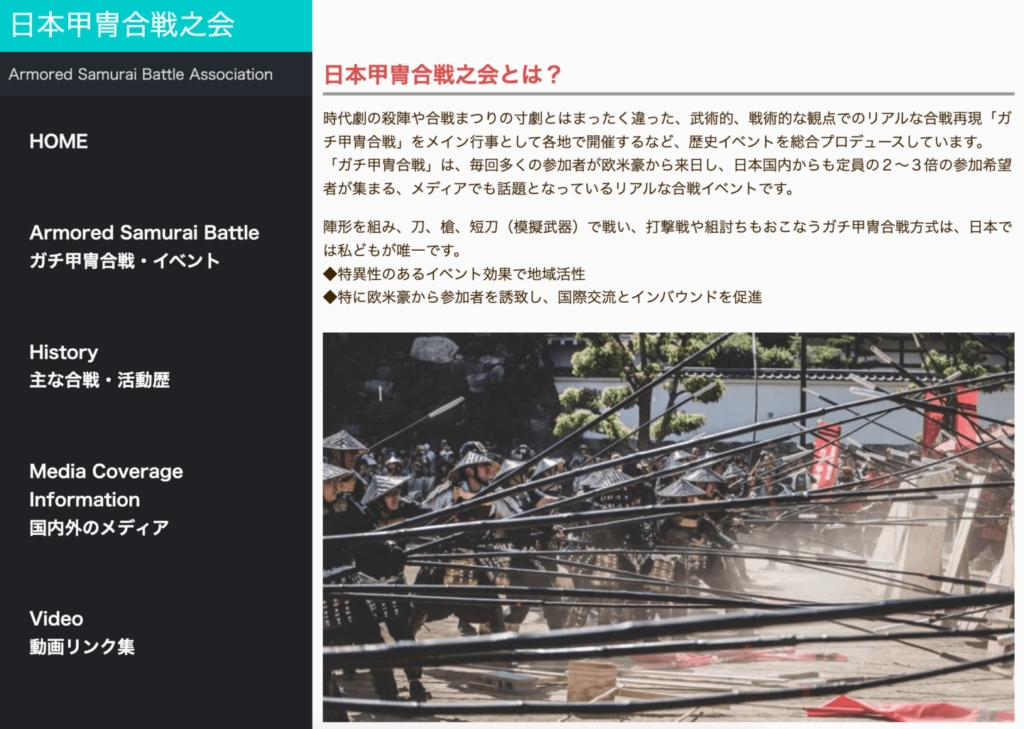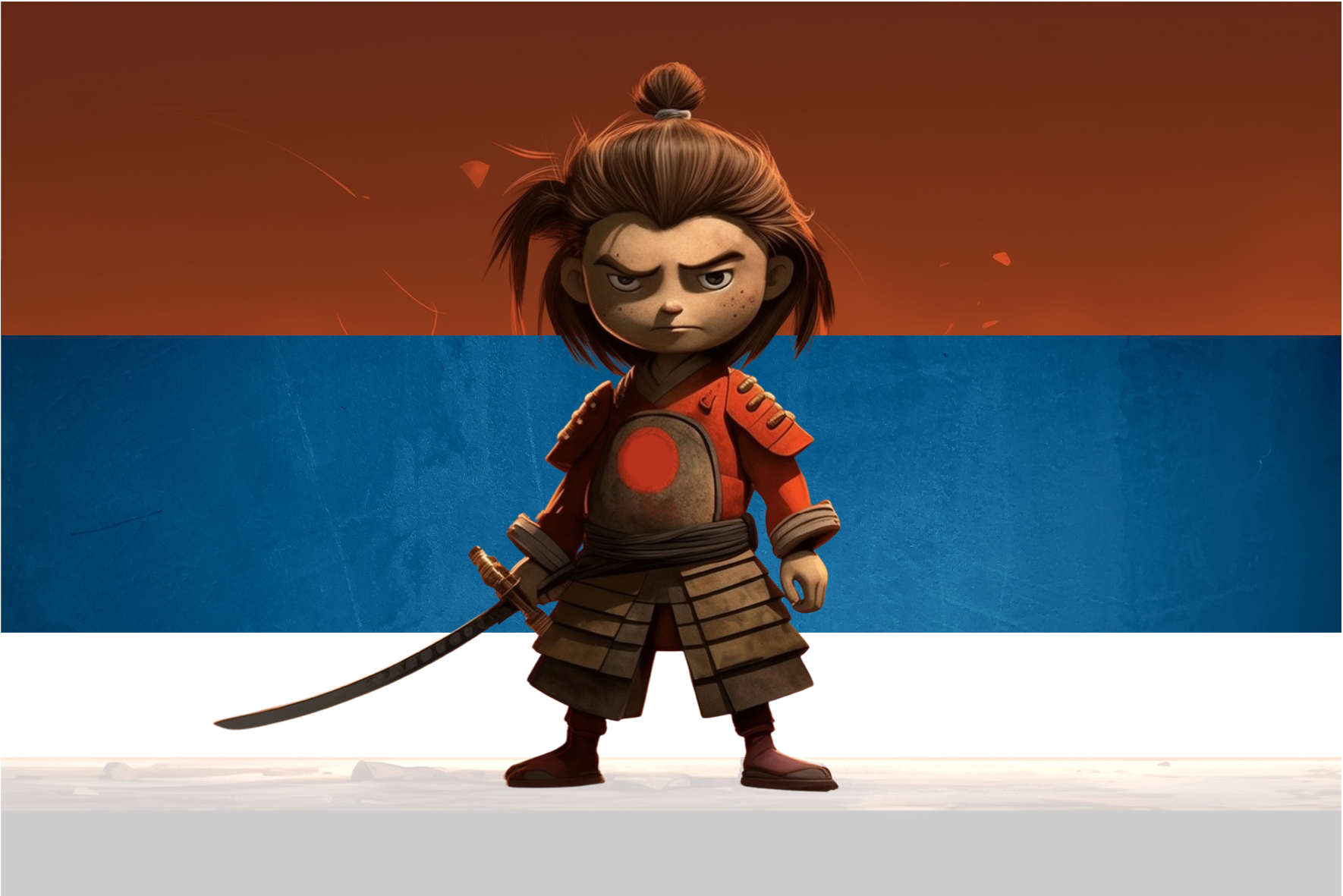Original article (in Serbian) was published on 18/5/2024; Author: Ivan Subotić
“It is impossible to become a samurai in the 21st century”, a reader wrote to us and brought attention to an article published by Nova about a man who is supposedly “the only one in the Balkans who holds the title of samurai”. The man in question, Mladen Burazerovic, a master of martial arts and trainer from Loznica, has long presented himself as a samurai in the media. This man, Mladen Burazerovic, a martial arts master and trainer from Loznica, has long presented himself as a samurai in the media. We consulted several historians of Japanese culture and authors who have written about samurai, as well as Burazerovic himself, to ascertain the possibility of being a samurai today. Despite the sensitive nature of the topic, we concluded that, in the true sense of the word, becoming a samurai in the modern age is highly unlikely.
While we do not intend to question Burazerovic’s commendable expertise in martial arts, this article aims to explore how he acquired the title of samurai in the 21st century. We will examine whether this title can truly be considered equivalent to historical samurai titles and how such titles were historically conferred in Japan. Mladen Burazerovic responded to some of our inquiries but specified that the information is exclusively for our use and not for publication. Respecting his wishes, we will not disclose the details of our correspondence.
Media Coverage of Burazerovic
In recent years, over 20 media outlets from Serbia and the region have covered Mladen Burazerovic, dubbed the “first Serbian samurai.” Notably, Radio Television of Serbia (RTS) has featured him multiple times, including on their programs ‘Sarenica‘ and ‘Morning Program,’ along with at least one other segment available on the RTS website. Additionally, Nova (1, 2), N1, Blic (1, 2), BBC in Serbian, PRVA (1, 2), B92, Telegraf, Vidovdan, Informer, Novi glas, Kurir (1, 2), Politika, Mondo, 24 sedam, Srbija danas, Loznicke novine, Topvita.info as well as regional web portals Trebinje danas, Frontal, Srpska info have all reported on Burazerovic’s claim to the samurai title.
The Path to Burazerovic’s Samurai Title
Burazerovic has consistently told media outlets, both online and on television, a similar story about his journey to the title of samurai, though some inconsistencies appear across different accounts. For instance, web portals like Nova and N1 mention that Burazerovic was awarded the title of samurai by the Japanese Samurai Organization. However, Blic reports that it was by the Armored Samurai Battle Association. Upon investigation, no entity known as the Japanese Samurai Organization could be located, suggesting it may not exist under that name. On the other hand, the Armored Samurai Battle Association is a real organization, led by President Masashi Yokoyama. Burazerovic credits Yokoyama, along with Shige Omae, for his elevation to samurai status in his narratives.
According to media reports, Mladen Burazerovic’s promotion to samurai status was recommended by Alfonso Torregrossa, known as the “Samurai Captain” from Italy. Research on Torregrossa reveals that he is a prominent martial arts master in Italy, who also attends seminars in the field of neurolinguistic programming (NLP) during breaks between training sessions. Torregrossa maintains a personal website that features his extensive biography, showcasing his achievements as a master of jiu-jitsu, aikido, and his role as a certified trainer with over 30 years of experience, as well as a life coach.
While Alfonso Torregrossa is prominently featured on his website as an expert in various martial arts and is involved with a martial arts academy named Samurai Dojo, there is no indication that he describes himself directly as a samurai or “Samurai Captain.” The term “samurai” is used solely in the context of his dojo’s name, Samurai dojo —dojo being the Japanese term for a martial arts practice space. According to his website, he is globally recognized as an expert in Jujutsu and Kapap Krav Maga, yet he modestly prefers to be known as a “lifelong black belt.” Therefore, it appears that the title of samurai is not claimed by Torregrossa in any personal or professional capacity beyond the branding of his martial arts school.
What is the Armored Samurai Battle Association?
Returning to the organization whose president reportedly promoted Burazerovic to samurai, the Armored Samurai Battle Association outlines on its website its mission to “restore the real tactics and martial arts of Samurai of the 16th Century.” The association organizes events such as the “Armored Samurai Battle Festival,” which draws Japanese and international martial arts enthusiasts, professional fighters, and others several times a year. Founded by martial arts master Masashi Yokoyama, the association is a part of the International Martial Arts & Culture Federation, which Yokoyama also established. However, it’s noteworthy that the latest updates on the organization’s website and social media channels are over two years old.

Essentially, it is an organization that deals with the cultivation of samurai culture through the reconstruction of battles. In Serbia, but also in Europe, there are organizations that engage in similar activities, such as the “White Eagles” association, which organizes the “Just out” festival in the Manasija monastery, reenacting the battles of knights. The website of the Armored Samurai Battle Association doesn’t mention anything about the fact that it can promote you to become a samurai. On the other hand, the International Federation of Martial Arts and Culture, which is also led by Yokoyama, offers you to become its member if you have a black belt in any martial art and 15,000 yen (about 90 euros).
FakeNews Tragac wrote to both organizations, as well as to Masashi Yokoyama through various emails and social networks. However, we did not receive answers to our questions until the publication of the analysis.
Are Samurai Present in the 21st Century?
In order to answer this question, we contacted several historians and authors of books about the samurai. Everyone agrees on one thing: samurai existed as a social class from roughly the end of the 16th to the second half of the 19th century in Japan. “Today there is no legal or publicly recognized way to call yourself a ‘samurai.’ For many centuries, ‘samurai’ was not a specific title, but would refer to anyone involved in combat or warfare”, explains Nick Kapur, a historian of modern Japan at Rutgers University in the US, noting that “around 1600, the title ‘samurai’ became a special class status category that was inherited by blood and legally defined”.
Can anyone call himself a samurai today? “Not in the legal sense. I can imagine someone calling himself a samurai based on an ideological game. It is only a comparison with a historical figure or a historical stratum. When I was young, I played a ‘knight’ in the hills of West Virginia, even though I was just a poor cragsman”, answers Luke Roberts, professor of Japanese history at the University of California. Professor of Japanese history from the University of Maryland, Konstantin Vaporis, partly agrees with him, stating that “technically no person can be a samurai today”, but he has heard of “organizations that give people honorary titles of samurai, such as the Sake Samurai organization”.
On the other hand, the author of the book “Another Samurai Story”, writer and publicist Julien Peltier, who interviewed Masashi Yokoyama, states that he has nothing against people calling themselves a samurai and that he himself did so when he was young. However, he adds that it essentially “doesn’t make sense, because, let’s hope, no one is expected to die for one word of his ‘master’”.
Peltier also explains that Yokoyama is “undoubtedly a very skilled martial arts expert”, but also states that his organization can only symbolically award the title of samurai. “I don’t think this ‘title’ could have any real meaning, in Japan or anywhere. There are many schools and branches in the world of martial arts, each of which tends to claim to be based on a ‘true’ tradition. It’s a sensitive topic and always has been…”, says Peltier.
The samurai as a legal status was abolished as part of the Meiji Restoration at the end of the 19th century, explains Professor Roberts. Before that, this title could initially be worn by any fighter who was skilled in warfare, and until around 1600, samurai became a special caste and the title could be inherited exclusively by blood. “I can imagine people who lived in the 1870s saying that they were still samurai, despite the legal changes, and I can imagine their children calling themselves samurai, but from that moment on it was just a cultural tradition of family pride”, concludes professor Luke Roberts.



